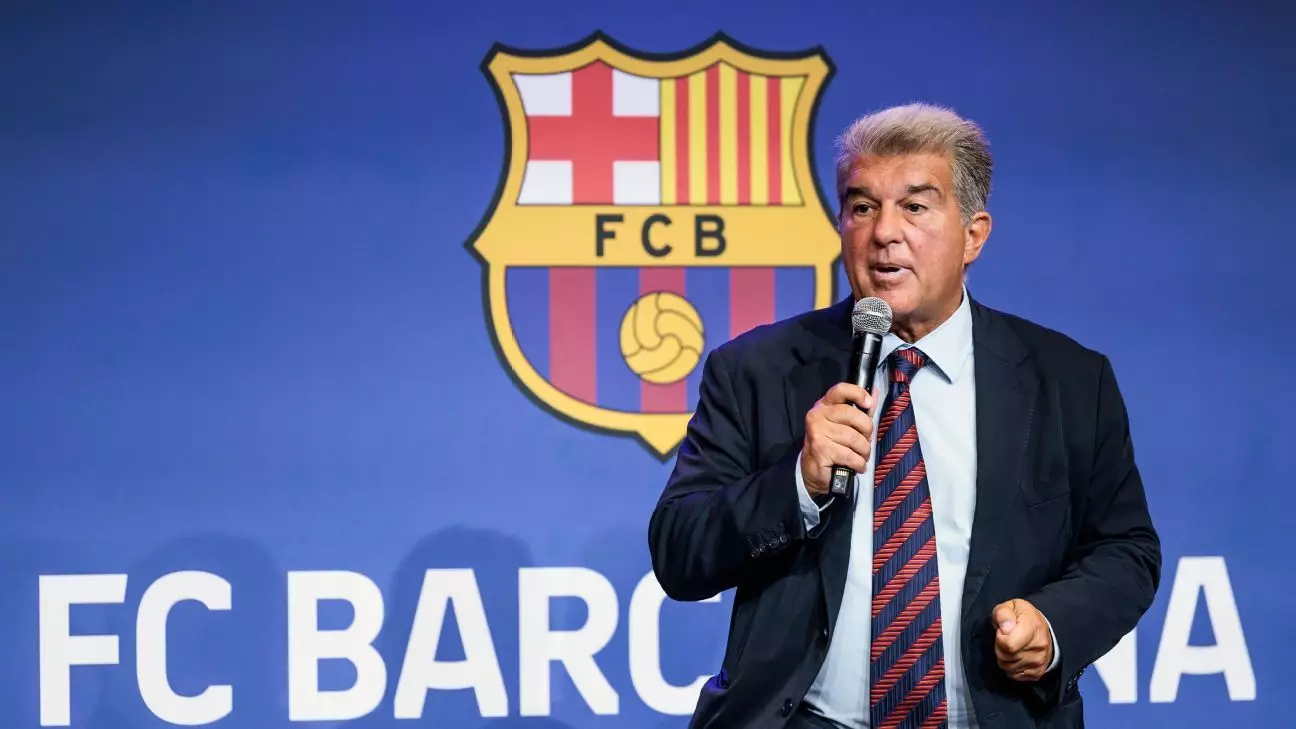The dynamic world of football management often exposes clubs to fierce scrutiny, particularly when the stakes are as high as they are in La Liga. Recently, FC Barcelona found itself embroiled in a significant controversy, prompting various opposition factions to rally for the resignation of president Joan Laporta. This uproar stems from the recent debacle surrounding the failure to register players Dani Olmo and Pau Víctor, leading to widespread dissatisfaction among fans and stakeholders alike. The outcry has been spearheaded by multiple supporters’ groups, including those led by figures such as Victor Font and Joan Camprubí Montal. These organizations are not merely raising complaints; they are advocating for substantial change in leadership due to perceived mismanagement and regulatory failures.
The immediate cause of this tumult revolves around the club’s inability to re-register two key players, Olmo and Víctor. Barcelona missed a critical deadline of December 31, which was crucial for compliance with the financial fair play (FFP) regulations enforced by La Liga. This regulatory oversight underscores a larger pattern of alleged negligence that opposition groups claim is symptomatic of deeper issues within Laporta’s leadership. Complaints extend beyond player registration failures and delve into controversial financial dealings, including substantial commissions paid during contract renewals with the kit supplier Nike and contentious decisions related to fan engagement at the Olympic Stadium. The supporters’ groups view these factors as symptomatic of a governance structure that has, in their eyes, faltered under Laporta’s stewardship.
The culmination of these controversies has created a volatile atmosphere for Laporta, who has been in office since 2021 and is mandated to serve until 2026. The coalition of ten opposing groups has issued statements articulating their dissatisfaction and threatening a vote of no confidence should Laporta fail to resign. This looming threat indicates a profound level of discontent among the fanbase, sparking critical discussions about accountability and governance within the club. Furthermore, the financial implications of selling VIP seats at Camp Nou—amounting to a staggering €100 million for the next two decades—are posited as a misstep that has repercussions for the club’s operational strategy.
Compounding the crisis is the decision by Barcelona to appeal the ruling made by La Liga and the Spanish Football Federation (RFEF) regarding the suspended registrations. The club has announced its intention to take their case to the Consejo Superior de Deportes (CSD), Spain’s highest sports authority, in hopes of reversing the decision. As they prepare their argument, club officials maintain optimism that both Olmo and Víctor will eventually be cleared to play this season. The timing of this appeal comes just as the team is set to participate in the Spanish Supercopa against Athletic Club. The pressure to resolve this predicament is palpable, and there is a sense of urgency to restore stability within the team.
The potential fallout from these registration issues extends beyond club management and governance. Both Olmo and Víctor are reportedly distraught over the protracted circumstances surrounding their registrations. Their contracts contain clauses that allow them to exit the club for free if they are not registered for the latter half of the season. Thus, while both players seem dedicated to remaining with Barcelona amidst the turmoil, the situation has bred uncertainty and frustration. This uncertainty reflects a broader concern; how will this crisis affect Barcelona’s reputation and competitiveness on both a national and international scale?
The confluence of administrative missteps, financial controversies, and player registration failures has thrust Joan Laporta’s presidency into a precarious position. As opposition groups tighten their calls for his resignation, the club faces an inflection point that could redefine its future trajectory. Barcelona’s legacy is one that thrives on excellence and stability, and current events suggest that a reevaluation of its leadership may be warranted. Whether Laporta can navigate this turbulent landscape successfully or if a significant shift in management will occur remains to be seen, but one thing is clear: the call for accountability has never been more urgent.
